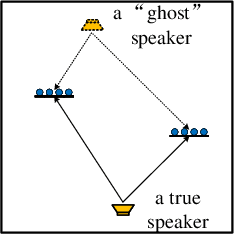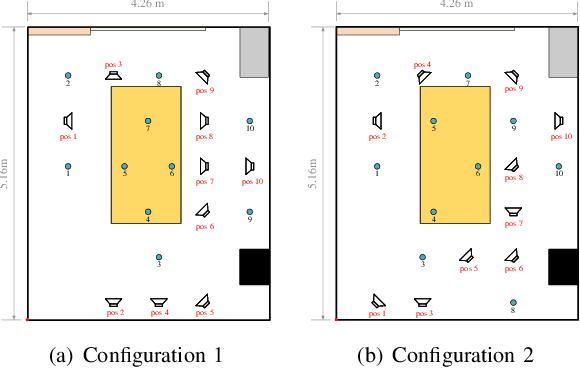Deep Learning Based Two-dimensional Speaker Localization With Large Ad-hoc Microphone Arrays
Paper and Code
Oct 19, 2022



Deep learning based speaker localization has shown its advantage in reverberant scenarios. However, it mostly focuses on the direction-of-arrival (DOA) estimation subtask of speaker localization, where the DOA instead of the 2-dimensional (2D) coordinates is obtained only. To obtain the 2D coordinates of multiple speakers with random positions, this paper proposes a deep-learning-based 2D speaker localization method with large ad-hoc microphone arrays, where an ad-hoc microphone array is a set of randomly-distributed microphone nodes with each node set to a traditional microphone array, e.g. a linear array. Specifically, a convolutional neural network is applied to each node to get the direction-of-arrival (DOA) estimation of speech sources. Then, a triangulation and clustering method integrates the DOA estimations of the nodes for estimating the 2D positions of the speech sources. To further improve the estimation accuracy, we propose a softmax-based node selection algorithm. Experimental results with large-scale ad-hoc microphone arrays show that the proposed method achieves significantly better performance than conventional methods in both simulated and real-world environments. The softmax-based node selection further improves the performance.
 Add to Chrome
Add to Chrome Add to Firefox
Add to Firefox Add to Edge
Add to Edge